Opioids are a class of substances and prescription medications including oxycodone, codeine, morphine and heroin. These substances have a formidable reputation because they can be so powerful and lead to addiction so quickly. When an individual uses opioids, a drastic endorphin boost occurs, which leads to intense euphoria and reduced pain sensations. The feeling can be pleasurable, but short-lived, and more opioids are needed to cause the same effect the longer the drugs are used. This can make people highly susceptible to developing tolerance and, concurrently, an opioid use disorder.
Unfortunately, opioid addiction can have detrimental effects on the individual and the people that care about him or her. The addicted individual may sacrifice everything from relationships to financial stability and physical well-being to obtain opioids, even while recognizing the consequences of using. Find out more about the risk factors of opioid addiction and signs of opioid use below.
Risk Factors for Developing an Opioid Addiction
The causes or risk factors for developing an opioid addiction can be highly individualized and complex. There can be situational (environmental) factors, genetic factors and co-occurring mental health disorders involved. Situational factors are based on environmental exposure to certain elements, such as growing up in a home in which the parents used opioids, or being exposed to chronic stress, poverty or violence. Genetics may also play a role, as some studies have shown opioid-using family members may share specific genetic markers.
Some risk factors for opioid use can include:
- Being prescribed opioid pain medications after an injury or surgery
- Having a family history of substance use disorder or mental illness
- Experiencing something traumatic
- Having a difficult time managing stress
- Having a history of substance use or mental illness
- Having a low socioeconomic status
- Being around others who commonly use opioids
Individuals who become addicted to opioids also often have co-occurring mental health conditions, such as:
- Posttraumatic stress disorder (PTSD)
- Anxiety disorder
- Bipolar disorder
- Personality disorders
- Depression
- Attention deficit hyperactivity disorder (ADHD)
Potential Consequences of Opioid Addiction
Opioids are highly addictive and can have a powerful effect on individuals who develop an opioid use disorder. Every person that develops an addiction to opioids can experience different consequences. However, negative implications are common, such as:
- Poor job performance or job loss
- Broken or negatively affected relationships with partners, family members or friends
- Financial challenges, such as the inability to pay for housing or necessities
- Isolating from others or avoiding social situations
- Physical issues, including collapsed veins, respiratory problems, sexual dysfunction or heart problems
- Infections caused by sharing needles, such as AIDS or HIV
- Overdosing, which can be fatal
Symptoms of Opioid Use and Addiction
Signs of opioid addiction are not always obvious in the earlier stages. People can often keep their use concealed, but as the addiction progresses, signs of a problem can be easier to point out. This is often because the individual may not need as much medication for desired effects in the beginning.
For example, if an individual is prescribed a painkiller such as oxycodone for a long period, the signs of pain killer addiction may not be apparent immediately. However, oxycodone addiction symptoms may manifest with time as the person needs more of the medication to achieve the same desired effects.
If you believe your loved one is abusing opioids, symptoms may emerge that are cognitive, behavioral, physical or even psychosocial in nature.
Behavioral signs can include:
- Poor job performance
- Stealing medications or money to buy opioids
- Withdrawing from loved ones or unexplained absences
- Exaggerating or lying about discomfort to get more opioids
- “Doctor shopping” or visiting multiple physicians in an effort to get more opioids
Psychosocial signs can include:
- Irrational mood swings
- Suspicion or paranoia
- Aggressive outbursts
- Unprovoked irritability
- Depression
Cognitive signs can include:
- Poor concentration
- Appearing detached or apathetic
- Slowed cognition or reaction times
- Lacking judgment
- Impaired problem-solving skills
Physical signs can include:
- Tightly constricted or “pinpointed” pupils
- Lacking coordination or motor skills
- Issues with digestion, including constipation, nausea, vomiting or diarrhea
- Signs of intravenous drug use, such as sores, scabs or marks on the arms or hands
- Overall appearance changes, such as poor hygiene or changes in weight
Find Treatment for Opioid Addiction at Vanguard
Opioid addiction can be one of the most difficult substance use disorders to address. Therefore, finding the best level of treatment is essential. Vanguard Behavioral Health provides both inpatient and outpatient opioid treatment in Tucson, AZ, and Albuquerque, NM. We take an individualized approach and provide professional treatment with compassion for the person and his or her circumstances. If you believe your loved one needs help to break free of opioids, reach out to discuss treatment options that could help.








